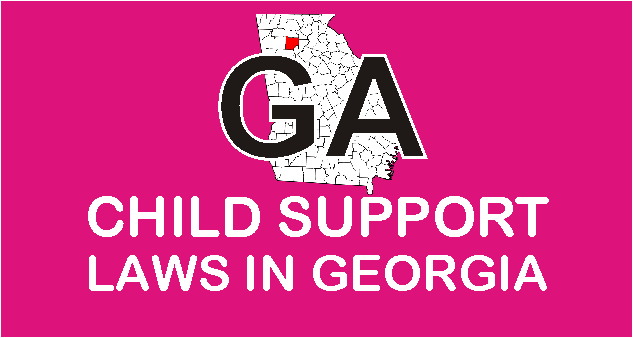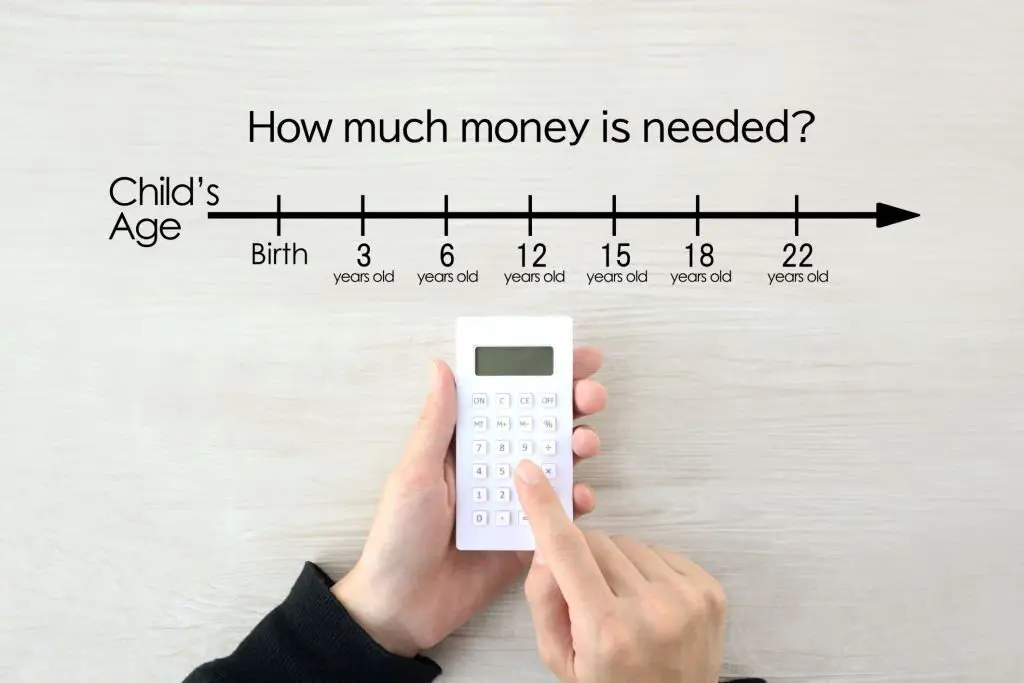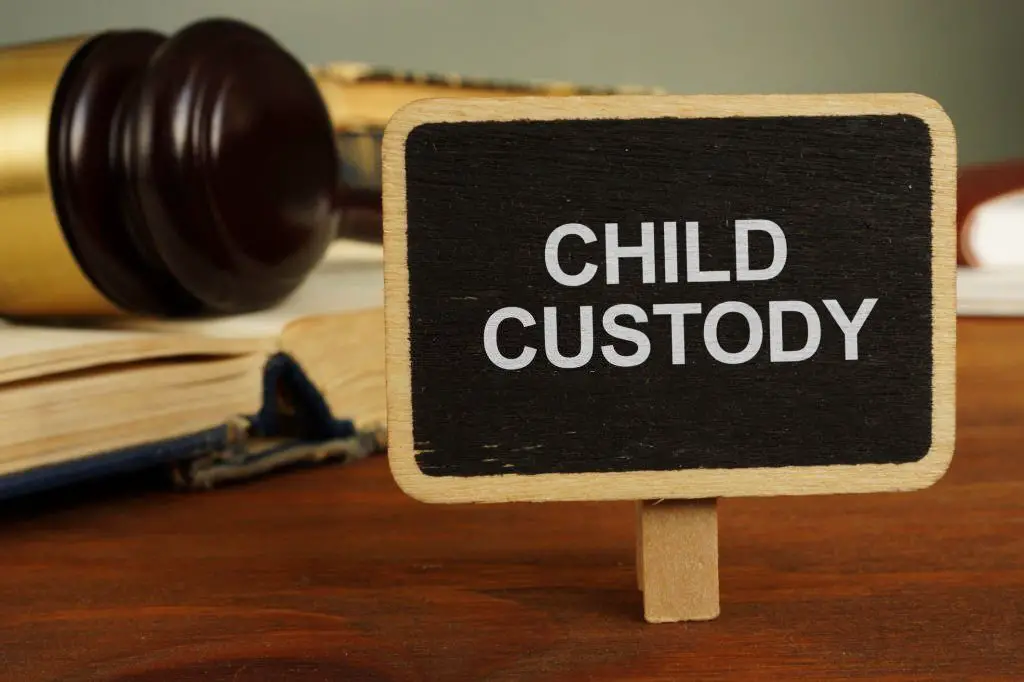
The laws governing child support in Georgia are different from that of other states. GA child support law seeks to guide parents in exceptional cases such as deviation, support for disabled children, and retroactive support.
As you may already know, child support (or child maintenance) is a continuous monetary payment made by a spouse to another spouse, guardian, caregiver, or the state for the upkeep of children after a divorce or separation.
Basically, the amount of child support that each parent would be required to pay will estimate the total amount the child would require if the parents were still together and this will be shared between the mother and father’s combined earnings, less any deductions. (Ga. Code § 19-6-15 (2022).)
In this article, we will give a rundown of the new Georgia child support laws and guidelines to enable you to get up to date.
What does Child Support Cover in Georgia?
Basic essentials (food, clothes, and accommodation) are covered by GA child support; anything extra that is required to help take care of the child must be paid for out of pocket.
Extracurricular activities, uninsured medical costs, and educational costs including soccer outfits, school materials, and doctor co-pays are not covered by child support.
Child Support When One Parent Lives Outside Georgia
To enforce child support orders beyond state boundaries, each state has to have the Uniform Interstate Family Support Act (UIFSA) in place. Georgia is no exception.
The UIFSA ensures that child support processes and procedures are consistent across states. When one spouse lives in another state where the Georgia courts do not have the authority to adjudicate or enforce orders, UIFSA reduces these bottlenecks.
However, non-custodial parents who reside in another state other than Georgia are governed by the legal system and statutes of that state. In order to help in the execution of your order, the Georgia Division of Child Support Services must rely on the government in the state where the non-custodial parent resides.
How is Child Maintenance Calculated In Georgia?

Learn How Child Maintenance Calculated In Georgia
To calculate child maintenance, Georgia uses the Income Shares Model. The Georgia Child Support Commission’s procedure for determining the basic child support obligation (BCSO) is described as follows:
Firstly though, Decide on child custody
Identifying which parent is the “custodial” parent and which is the “non-custodial” parent is the first stage. Typically, the noncustodial parent has the children less frequently than the custodial parent, who typically has them more frequently.
However, if custody time is equal, you’ll likely need to do the math to figure out which parent the court will consider to be the noncustodial parent. Because when parenting duration is equal, the court will typically (though not always) consider the parent with the higher earnings to be the noncustodial parent and impose child support obligations on them.
Step 1. Determine the gross income of each parent
To begin, the income of the parents will be determined. As stated, the parent with a higher income will have to contribute more to the child’s upkeep.
For Example, if the father earns $6,000 while the mother earns $4,000, after adjusting the deductible, then their gross total income is $10,000 where the father earns 60% and the mother 30%
Step 2. Add up the gross income of both parents
In the second step, in order to calculate the total monthly child support obligation, use the Georgia Basic Child Support Obligation table. See the 2019 table by clicking here.
Scroll down the “Combined Adjusted Gross Income” column on the left until you reach $10,000 to see the total amount of child support due. Due to the fact that there is only one child, both parents must pay a total of $1,259 in child support per month.
Step 3. Determine the Child support amount for the non-custodial parent
The combined child support amount for one child, as calculated by the BCSO Table, is $1,259 per month. The Mother is responsible for $499.60 each month, or 40% of $1,259 (0.4x $1,259).
The father owes a monthly debt of $749.40, or 60% of $1,259 (0.6x $1,259).
This is not typically the monthly payment for child support. The BCSO number will be further adjusted using the following variables.
Step 4. Adjustments to BCSO Amount
The next step is to take into account adjustments for specific special situations or any other payments a parent is going to make on behalf of the child who will stand to gain from the child support obligation. This is done after determining the child support amount each parent is required to pay based on the BCSO.
There may be changes made for:
- income difficulty
- Compensation for Other Expenses
- Parenting time spent
- a judicial overturn (acceptable under Georgia Law)
Georgia Child Support Calculator and Worksheet
While a child support calculator can be used to estimate child support, it is not a guarantee of the final amount of child maintenance that the judge will order. A child support worksheet is a form used by the GA courts (or negotiating spouses) to approximate the basic child support obligation of the parents.
Regardless of which approach you use, spouses can decide on a child support sum and amend the worksheet accordingly to ensure it accurately reflects their agreement. Both establish a presumption duty to pay child support.
Gross Income Included in Calculating Child Maintenance
For child support calculation purposes, gross income includes:
- all wages and salary, including commissions, military pay, tips, overtime, and bonuses
- self-employment income
- interest and dividends
- net rental income from property the parent owns
(Ga. Code § 19-6-15(f) (2022).)
Even jobless parents are likely to have some sources of income, like:
- severance pay
- unemployment benefits
- retirement benefits
- veterans’ benefits
- disability benefits, or
- workers’ compensation awards.
Gross income excludes public aid or child support received for children from past relationships. (Ga. Code § 19-6-15(f) (2022).)
You can deduct half of any self-employment taxes you paid from your gross income in addition to any child support you provided in another case. You could also be entitled to deduct money for the support of any natural or adopted children from a previous relationship who reside with you if they are not covered by a child support order.
Imputing Income for Child Support
A GA family court judge may also allocate an income value to parents who do not currently have income-earning employment (like a second house). If a jobless parent inherits assets that can be sold, for instance, the judge may include the property’s market value as a part of such parent’s income.
Where parents willfully go unemployed or underemployed in order to avoid paying child support, judges may infer (assign) income based on what they are supposed to be earning.
Net Income for GA Guidelines

How to determine Net Income for GA child support
Remove the following costs from the total gross income to get the parent’s net income for paying child support in Georgia:
- Social Security taxes, or any mandated retirement plan contributions if the parent does not pay those taxes.
- Income taxes, both federal and state (based on the tax rate for a single person claiming one exemption)
- union dues
- The GA court has ruled the parent to pay the child’s health and dental insurance premiums, as well as additional medical bills.
Parents who have already paid child support for another kid or children (from a previous relationship) may be eligible for a refund.
Is Medical Health Insurance Part of Child Support in Georgia?

Medical Health Insurance and Child Support in Georgia
Yes, in addition to the amount of support determined by the guidelines in Georgia, the parents will be responsible for the child’s health and dental insurance. The overall amount of child support, however, cannot be calculated using costs for uninsured health care services.
The division of uninsured medical costs is proportionate (pro-rata), however, the courts are not required to adhere to this rule. Whereas the noncustodial parent is presumed to provide coverage, this can readily be transferred to the other parent if it makes good sense.
The Georgia child support statute is clear that employee benefits that are generally added to a parent’s pay, wage, or other remuneration as a standard additional benefit, but not restricted to, employer-paid parts of health insurance premiums—do not count toward gross income. OCGA§19-6-15(f)(1)(C).
Factors Georgia Courts Consider Before Ordering Maintenance
The following factors must be considered by the court when determining whether Georgia Family Code applies:
- The age of the child and needs; the parents’ ability to assist
- Financial resources available to the child
- For a set period of time, you have custody and access to a child.
- An increase or decrease in the obligee’s earnings or income due to the obligee’s property and assets
- Childcare expenses incurred by either parent in order to keep a job
- any other children under the care of either party
- Any other children under the care of either party
- What kind of alimony or spousal maintenance is being paid or received;
- Obligor or obligee receives an automobile, house, or other benefits from his or her employer or business entity.
- The parties or the child’s special education, health care, or other expenses
- The cost of traveling to obtain custody of and access to a child.
- Cash flow from any estate and assets, including real estate, personal property, and business property, can be positive or negative.
How to Modify Child Support Order in GA
To modify a child support order either upward or downward, a parent must demonstrate that there’s been a significant change in either parent’s income and financial situation, or in the requirements of the child since the initial child support order was issued. A parent cannot request another adjustment of child support for two years after requesting one before, unless:
- the parent’s unforeseen loss of income is the basis for the amendment request.
- Whether the noncustodial parent has disobeyed a court order to visit,
- Compared to what the court ordered, the noncustodial parent has used visitation much more frequently.
If this criterion is satisfied, the child support guidelines will be applied to reevaluate your responsibility to pay child support based on the income and parenting time of each parent.
Steps to Collect Child Support in Georgia

Steps to Collect Child Support in Georgia
Getting a child support order in place is only half the struggle in Georgia. You’ll also have to collect the money itself. A noncustodial parent is responsible for paying the full amount of child maintenance per month as imposed by the court. Here are the steps for getting child support in GA
1. Open a Child Support Case
Complete a child support application with your local child support agency/office
2. Locate the Other Parent
To begin the child maintenance procedure in GA, the child support services (CSS) office will use the information provided by the applying parent, as well as information gathered from other sources, to try to locate the other parent.
3. Establish Parentage
It’s critical to establish a legitimate relationship with the child when the other parent has been located. The state will assist you in locating sufficient means. Parents can choose to acknowledge their parentage voluntarily or organize a genetic screening.
4. Establish a Child Support Order
A Georgia child support order specifies how much the other parent should pay and includes details such as the payment schedule and provisions for the child’s health insurance.
5. Set Up Payment
Deducting child maintenance from a parent’s paycheck and transferring the money to the other parent or guardian is the most typical method of payment. It’s a simple way to make and track child support payments.
6. Enforce the Support Order
Your GA child support services will enforce the child support order if the noncustodial parent does not pay the full amount or does not pay any. Exposing overdue child support payments to credit bureaus, intercepting income tax refunds, and Withholding child maintenance from unemployment or worker’s compensation benefits are examples of other enforcement measures.
7. Review the Order
Three years after the order is issued, either parent can request their local child support office to revise it. They can ask for a reassessment sooner than three years if a parent’s situation has changed significantly, such as loss of employment or imprisonment.
Georgia Child Support Services Office, Number and Login Portal
Department of Human Services Division of Child Support Services
Office Address: 95 Constitution Blvd SW #200, Lawrenceville, GA 30046, United States
Phone: +1 844-694-2347
Online Login Portal – Website
Back Child Support and Arrears
Back child support is the sum of child support specified in a court order that is due but has not yet been paid. The term “arrearage” or “arrears” may also be used to describe it. Interest, legal charges, and court costs may be assessed when child support is not paid in accordance with the court order and no efforts are made to catch up on arrears.
The idea of back child support is not recognized by Georgia law, although the state does not completely disregard custodial parents who have incurred significant costs raising their children alone.
Additionally, a noncustodial parent might be sued for contempt by the custodial parent. This frequently occurs when a superior court, such as one involved in a divorce or legitimation case, issues the initial order to establish child support.
The court may imprison the noncustodial parent for failure to pay child support and order them to make a “purge payment” in order to be released.
A court may require the non-custodial parent to pay back a percentage of the real costs incurred on behalf of the kid if the custodial parent can demonstrate these costs (which may include prenatal and postpartum costs).
If you feel the arrears are being demanded wrongly, you can learn how to get child support arrears dismissed HERE.
How to Pay Child Maintenance in Georgia
In Georgia, parents can pay child maintenance in a variety of ways, as long as your order doesn’t state otherwise:
- by debit or credit card,
- mail,
- check
- bank transfer
- direct deposit
- income withholding, or
- auto-draft from a bank account.
How to Check your Child Support Payment History in GA

How to Check Child Support Payment History in GA
When there are disagreements between the parents and a need to confirm how much money is owed, child support payment records are extremely beneficial.
For child support payment history in Georgis, see our full page on various ways to contact
When Does Child Support End in Georgia?
The Georgia statute stipulates that one or both parents support a child until:
- the child reaches the age of majority (currently age 18), unless there is a clause specifying that child support should continue until the child completes secondary school at age 20,
- the child’s marriage.
- the child’s passing.
- the passing of the responsible parent.
- the passing of the parent who is the child’s legal custodian.
- if the parent who is required to have custody of the child does so.
- as required by the court’s final decree, otherwise.
Nevertheless, if the judge determines that the child is disabled (physically or mentally), the child can receive support perpetually.

Understanding Custody Rights of a Child in Georgia
How Does GA Child Support Work if one Parent Has no Job?
According to Georgia law, the court may assign a support amount to a parent who is unemployed, has a modest income, or has lied about their gross income. In the past, Georgia courts might assign an underemployed parent’s wages from a 40-hour workweek at the minimum wage.
A 2018 legislation change, however, offers the court more latitude. In order to determine a more precise amount to impute, the court can now consider a number of criteria, such as:
- earnings history of the parent who is not working enough
- average market pay in the sector where the parent is employed
- available positions that a parent who is underemployed can hold in the neighborhood
- assets and housing condition of the underemployed parent
Is Child Support Tax Deductible in Georgia?
NO. In Georgia, child support payments are neither taxable to the recipient nor tax-deductible by the payer as stated by the IRS. Don’t include child support payments when calculating your gross income to see whether you have to file a tax return.
However, either parent may be eligible for a dependency exemption per child. If the parents can’t agree on who receives the exemption, the judge will set out the terms in a court order.
Getting a Skilled Georgia Child Support Attorney
If you are involved in a family law matter in Georgia, you may have a lot more questions than answers at this moment. You are not alone; Correspondence with members has shown that using the services of specialized child support attorneys saves a lot of hassles and most importantly, ensures you come out as a winner for you and your kid.
If you need to fight your child maintenance cause in GA with confidence, then you’ll need attorneys that are both empathetic and strong.
Luckily, we have compiled a database of these expert child support lawyers and made them available for the convenience of our members. You can reach them at the click of a button for legal advice and representation on child maintenance.
Click Here to Get our Free Georgia Alimony recommendation.
Georgia Resource
- Georgia Child Adoption Guidelines
- Georgia Childcare Guidelines
- Georgia Child Custody and Visitation Guidelines
- Georgia Child Support Guidelines
- Georgia Divorce Guidelines
- Georgia Marital Property Guidelines
- Georgia Spousal Support Guidelines
- How to Check Georgia Child Support Payment History
Child Support Laws in all 50 States
A - Alabama | Alaska | Arizona | Arkansas
C - California | Colorado | Connecticut
D-H - Delaware | Florida | Georgia | Hawaii
I - Idaho | Illinois | Indiana | Iowa
K-L - Kansas | Kentucky | Louisiana
M - Maine | Maryland | Massachusetts | Michigan | Minnesota | Mississippi | Missouri | Montana
N - Nebraska | Nevada | New Hampshire | New Jersey | New Mexico | New York | North Carolina | North Dakota
O - Ohio | Oklahoma | Oregon
P-S - Pennsylvania | Rhode Island | South Carolina | South Dakota
T-U - Tennessee | Texas | Utah
V-W - Vermont | Virginia | Washington DC | Washington State | West Virginia | Wisconsin | Wyoming




